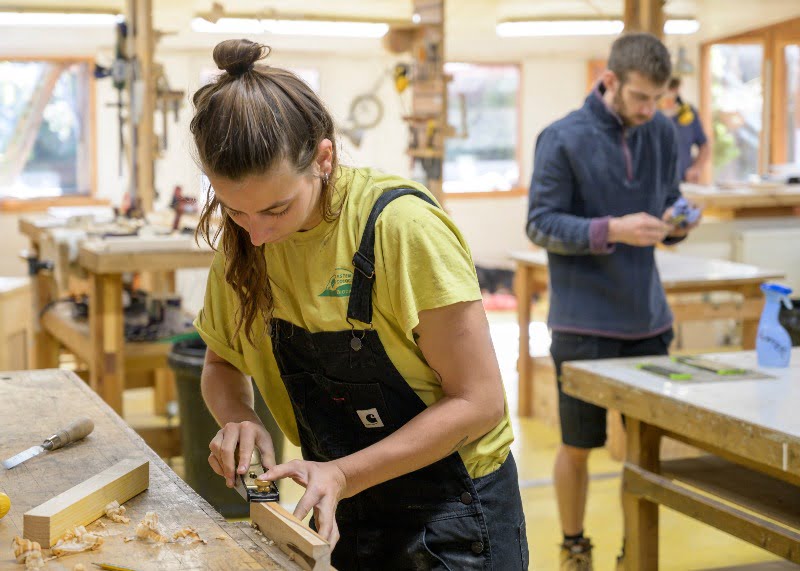Although technology has made our lives easier in many ways, there are still some things it can’t replace – a treasured family heirloom, a handcrafted piece of furniture and a one-of-a-kind artwork will always spark a joy that mass-produced pieces cannot match.
The Covid-19 lockdown period also introduced a new wave of people to the joys of making things by hand – the UK’s largest craft retailer, Hobbycraft, saw the numbers of people visiting the ‘ideas’ page on their website triple since lockdown began. We have seen an influx of enquiries about our cabinet courses of all levels too which is extremely exciting for our age-old craft.
While there are now many state-of-the-art techniques in woodworking, from CAD design software to laser wood cutters, that doesn’t mean that age-old techniques should be overlooked.
On the contrary, traditional woodworking skills should be valued, preserved and passed on for future generations, as there are some things that machines simply can’t do as well as good old human hands! In our fast-paced modern world, it can be extremely beneficial to slow down amidst the chaos and practice a hands-on skill and the surge in demand for woodworking knowledge indicates just how much this is needed.
A unique and ancient craft
Woodworking is an ancient skill, dating back to the stone age, and provides those who practice it with manifold benefits and opportunities. Working with natural materials is hugely beneficial for our wellbeing, bringing us closer to nature and providing a genuine sense of reward when we complete a project.
The only limit to woodworking is your imagination – there are no ends to the bespoke designs our students create in our workshops. From chairs and tables to drinks cabinets and desks, function and form are combined to create truly unique pieces.
It can also be an incredibly sustainable craft, particularly if you are working with carefully sourced local timbers. Restoring old pieces of furniture is also a key part of a circular economy, preventing waste and promoting re-use.
Of course, handcrafting techniques can be combined with modern tech to produce stunning results – you can read more about how we do this in our blog.
Why woodworking is so rewarding
Beyond creating a stunning handmade product, woodworking provides an abundance of other benefits to your mind and body.
It is not only a hands-on physical activity that helps keep you fit, it also mentally stimulates you as a ‘whole-brain activity’ – this means that your logical left and creative right sides work together when you’re woodworking.
Studies have shown that engaging in handcrafts can improve your mood, help you deal with stress, anxiety and even depression. The combination of problem solving and creativity that woodworking produces can provide an overwhelming sense of satisfaction when a project comes to fruition.
Woodworking also brings you closer to the natural world. Biophilic design is a growing area in the design world – this is where architects incorporate nature, such as trees and other greenery, into building design. Natural materials such as wood can be used in this way to bring a sense of nature into our homes.
Another benefit of woodworking is the close-knit community – there’s always going to be someone happy to lend a hand or offer advice if a project isn’t going as planned.
From a business mindset, woodworking has also proven to be a craft that is in demand as people move towards one-off pieces in a departure from mass-produced, homogenous designs. Handmade pieces hold more meaning and can be treasured for generations as a keepsake that never goes out of style.
Why our Professional Course could be for you
Our intensive 9-month Professional Course enables you to hone your skills in all aspects of furniture making and restoration so you can build a successful woodworking business from scratch. Traditional skills are combined with modern techniques and technologies offering the best of both worlds!
We foster a nurturing environment in our workshops that helps our students settle in quickly and perform to the best of their ability. You can find out more about how we build community at Chippendale school in this blog.
The Professional Course is also career-focused, helping to prime our students for life after graduation by also teaching the business management and marketing skills that are essential for the success of a new business.
If you want to find out more about studying at the Chippendale School, please see here or get in touch with our School Principal, Tom Fraser, for a chat.
